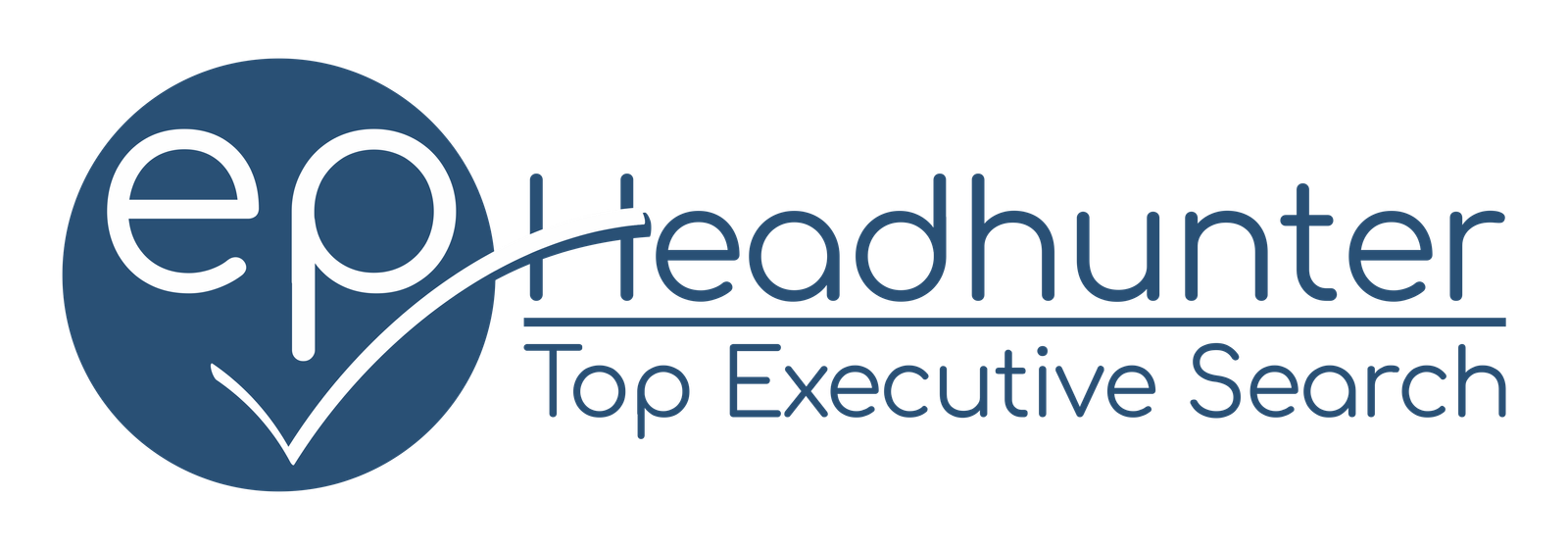Have you ever wondered if there’s a better way to identify the right candidate for your team? In today’s competitive job market, relying solely on traditional interviews can lead to biased decisions and missed opportunities. This is where psychometric tests come into play, offering a data-driven approach to recruitment.
These assessments provide valuable insights into a person’s personality, cognitive ability, and potential for long-term success. For companies in Colombia, this method can streamline the recruitment process, saving both time and resources. Tools like Thomas offer a comprehensive suite of assessments designed to enhance decision-making.
By integrating these tests into your strategy, you can ensure a better match between candidates and your company culture. This not only improves job performance but also fosters a more cohesive team. Let’s explore how this approach can transform your recruitment efforts.
Key Takeaways
- Psychometric tests provide objective data for better hiring decisions.
- They help identify personality traits and cognitive abilities.
- Using these tools can save time and reduce recruitment costs.
- Companies like Thomas offer reliable assessment solutions.
- Data-driven insights improve candidate fit and team performance.
Understanding Psychometric Testing in Hiring
Recruitment has evolved, and so have the tools we use to identify top talent. Traditional methods like resumes and interviews often fall short in revealing a candidate’s true potential. This is where psychometric tests come into play, offering a data-driven approach to hiring.

What These Assessments Measure
These tools provide a comprehensive view of a person’s abilities and traits. They evaluate cognitive skills like verbal and numerical reasoning, which are crucial for problem-solving. Additionally, they assess personality traits such as leadership potential and communication style.
For example, a personality test might reveal how well a candidate works in a team or handles stress. This insight helps employers make informed decisions, ensuring a better fit for the role and the company culture.
Relevance in Modern Recruitment
In today’s competitive job market, relying solely on interviews can lead to biased decisions. Psychometric assessments offer an objective way to evaluate candidates, reducing the risk of costly hiring mistakes. Studies show that these tests are over 14 times better at predicting job performance than traditional interviews.
Companies in Colombia can benefit greatly from integrating these tools into their recruitment process. Not only do they save time, but they also improve the quality of hires, leading to stronger teams and better results.
The Evolution of Psychometric Assessments in Recruitment
The journey of psychometric assessments has transformed recruitment strategies worldwide. From their early beginnings to the advanced tools we use today, these evaluations have reshaped how we identify and select talent.
From Traditional Methods to Digital Tools
Initially, psychometric tests were conducted using pen-and-paper methods. These early versions focused on basic personality traits and cognitive abilities. Over time, technology has revolutionized the way these assessments are administered and analyzed.
Today, digital platforms offer faster, more accurate results. They also provide deeper insights into a candidate’s potential. This shift has made the recruitment process more efficient and reliable.

Historical Milestones and Advances
The history of psychometric testing is marked by significant milestones. For example, the Myers-Briggs Type Indicator (MBTI) introduced in the 1940s became a widely used personality test. It helped employers understand how individuals fit into specific roles.
During World War II, these tests were adapted for military recruitment. They assessed skills and abilities crucial for wartime roles. This period highlighted the practical value of psychometric evaluations.
In recent years, advancements in AI and machine learning have further enhanced these tools. They now offer personalized insights and predictive analytics, making them indispensable in modern recruitment.
Key Components and Types of Psychometric Tests
Understanding the core elements of psychometric tests can transform how you evaluate candidates. These assessments are divided into two main categories: aptitude and cognitive tests and personality and emotional intelligence evaluations. Each type offers unique insights into a candidate’s potential, helping employers make data-driven decisions.

Aptitude and Cognitive Assessments
Aptitude tests measure a candidate’s cognitive abilities, such as verbal reasoning, numerical skills, and problem-solving. These tests are designed to predict how well a person can perform specific tasks or adapt to new challenges. For example, numerical reasoning tests assess a candidate’s ability to interpret data and make logical decisions.
According to a study, General Cognitive Ability (GCA) has a strong correlation with work performance, making it a reliable predictor of success. Tools like Thomas’ aptitude assessments provide detailed insights into a candidate’s strengths and areas for improvement.
Personality and Emotional Intelligence Evaluations
Personality tests focus on understanding a candidate’s traits, such as leadership potential, communication style, and cultural fit. Emotional intelligence evaluations, on the other hand, measure self-awareness, empathy, and social skills. These assessments help employers identify candidates who align with their company culture and values.
For instance, the Thomas Personal Profile Analysis (PPA) evaluates key personality traits, providing a comprehensive view of a candidate’s behavior in the workplace. As one expert noted,
«Personality tests are invaluable for predicting long-term success and team dynamics.»
| Test Type | Purpose | Example |
|---|---|---|
| Aptitude | Measure cognitive skills | Numerical Reasoning Test |
| Personality | Assess traits and cultural fit | Thomas PPA |
| Emotional Intelligence | Evaluate social skills | EQ Assessments |
By combining these tests, employers gain a holistic view of a candidate’s abilities and potential. This approach not only improves the hiring process but also ensures a better match between the candidate and the role.
Integrating Psychometric Testing into Your Hiring Process
Incorporating data-driven tools into your hiring strategy can revolutionize how you identify top talent. By integrating psychometric tests into your process, you can streamline screening and make more informed decisions. These tools provide objective insights into a candidate’s personality, skills, and abilities, ensuring a better fit for the role.

Streamlining Candidate Screening
Using assessments early in the recruitment process helps shortlist candidates efficiently. Automated test distribution and report generation save time and reduce manual effort. This method ensures that only the most qualified individuals move forward, minimizing reliance on subjective interviews.
For example, a personality test can reveal how well a candidate aligns with your company’s values. This information helps you focus on individuals who are more likely to thrive in the role.
Enhancing Decision-Making with Data
Objective data from psychometric tests supports better hiring decisions. These tools reduce bias and provide a clear picture of a candidate’s potential. By combining aptitude and personality evaluations, you gain a holistic view of their abilities.
Studies show that integrating these assessments can improve decision quality and reduce turnover. For instance, companies that use these tools report better team dynamics and long-term cost savings.
| Benefit | Impact |
|---|---|
| Reduced Bias | Standardized evaluations minimize subjective judgments. |
| Improved Fit | Better alignment between candidates and roles. |
| Time Savings | Automated processes speed up recruitment. |
By leveraging these tools, you can transform your hiring strategy. The result is a more efficient process and a stronger, more cohesive team.
Benefits of Psychometric Testing for Colombian Recruiters
For recruiters in Colombia, finding the right talent can be a challenge, but there’s a solution that simplifies the process. Psychometric tests offer a data-driven approach to hiring, providing insights into a candidate’s personality, skills, and abilities. These tools not only save time but also improve the quality of hires, making them a valuable asset in modern recruitment.
One of the key benefits is cost-effectiveness. By identifying top talent early in the recruitment process, companies can reduce expenses associated with lengthy hiring cycles. Studies show that using these assessments can lower turnover rates, leading to long-term savings.
Another advantage is the reduction of hiring bias. Traditional methods like interviews often rely on subjective judgments, which can lead to unfair decisions. Psychometric tests provide objective data, ensuring a fair evaluation of every candidate.
Improved team dynamics and culture fit are additional outcomes of targeted screening. By understanding a person’s aptitude and personality, recruiters can place individuals in roles where they are most likely to thrive. This not only boosts job satisfaction but also enhances overall organizational performance.
Finally, faster and more accurate candidate insights lead to better long-term hires. For example, a skill assessment might reveal a candidate’s potential for leadership, while a personality evaluation can highlight their ability to work in a team. These insights ensure that the right people are hired for the right roles.
In Colombia, where the job market is highly competitive, leveraging these tools can give recruiters a significant edge. By integrating psychometric testing into their strategy, they can build stronger, more cohesive teams and achieve better results.
Assessing the Role of Candidate Insights in Job Performance
Understanding how candidate insights shape job performance is crucial for modern recruitment. These insights, derived from psychometric tests, provide a clear picture of a person’s abilities and traits. By analyzing this data, employers can make informed decisions that lead to better outcomes.
Predicting Work Behavior and Performance
Tests like aptitude and personality evaluations offer valuable insights into how a candidate will perform in real-world scenarios. For example, numerical reasoning assessments can predict success in analytical roles, while emotional intelligence tests highlight leadership potential.
Studies show that these assessments are up to 70% accurate in forecasting job performance. This data helps employers identify individuals who are not only skilled but also aligned with their organizational goals.
Boosting Team Dynamics and Culture Fit
Beyond individual performance, psychometric tools play a key role in building cohesive teams. By understanding a candidate’s personality and traits, employers can ensure a better cultural fit. This reduces turnover and fosters a more collaborative work environment.
For instance, individuals who score high in extraversion are more likely to excel in customer-facing roles. Similarly, those with strong emotional intelligence contribute to better team dynamics and leadership effectiveness.
| Test Type | Key Insight | Impact on Performance |
|---|---|---|
| Aptitude | Measures cognitive skills | 25% increase in analytical roles |
| Personality | Assesses traits and fit | 40% better in customer-facing roles |
| Emotional Intelligence | Evaluates social skills | 60% more effective leaders |
By leveraging these insights, employers can build stronger teams and achieve better results. The strategic use of psychometric testing ensures that the right people are placed in the right roles, driving long-term success.
Overcoming Challenges in Test Implementation
Implementing psychometric tests in recruitment can be transformative, but it’s not without its challenges. While these tools offer valuable insights, concerns about fairness, privacy, and bias can arise. Addressing these issues effectively ensures a smooth and equitable process.
Addressing Candidate Concerns Effectively
One common challenge is alleviating candidate anxieties. Many individuals worry about test anxiety, fairness, and how their data will be used. Clear communication is key. Employers should explain the purpose of the assessment and how it benefits both the candidate and the organization.
For example, Unilever saw a 36% increase in applications after addressing candidate perceptions. By emphasizing the nondiscriminatory nature of the tests, they built trust and encouraged participation.
Mitigating Bias and Ensuring Fairness
Another critical aspect is reducing bias. Standardized administration and objective scoring are essential. IBM faced backlash in 2018 for biased evaluations, highlighting the importance of fairness in test design.
To ensure equity, employers should regularly review and update their methods. Transparency in scoring and continuous improvement in protocols can help maintain integrity.
| Challenge | Solution |
|---|---|
| Test Anxiety | Provide clear instructions and practice materials. |
| Bias | Use standardized administration and scoring. |
| Privacy Concerns | Communicate data usage policies clearly. |
By addressing these challenges, employers can ensure a fair and effective process. This not only improves candidate experience but also enhances the quality of hires.
Real-World Applications and Expert Insights
Companies worldwide are leveraging advanced tools to transform their recruitment strategies. One such tool is the psychometric test, which has proven invaluable in identifying the right candidate for the right role. These assessments provide deep insights into a person’s personality, skills, and abilities, ensuring a better fit for the job.
Case Studies and Success Stories
Several organizations have seen remarkable improvements in their recruitment outcomes by integrating psychometric testing. For instance, a leading tech company reduced its hiring time by 66% while improving the quality of hires. This was achieved by using aptitude and personality tests to shortlist candidates more efficiently.
Another example is a multinational corporation that reported a 36% increase in applications after addressing candidate concerns about fairness and privacy. By emphasizing the nondiscriminatory nature of the tests, they built trust and encouraged participation.
Experts have also weighed in on the efficacy of these tools. According to one industry leader,
«Psychometric assessments are crucial for predicting long-term success and team dynamics.»
This sentiment is echoed by numerous studies that highlight the role of data-driventestingin overcoming traditional recruitment pitfalls.
| Company | Improvement | Outcome |
|---|---|---|
| Tech Company | Reduced hiring time | 66% faster recruitment |
| Multinational Corp | Increased applications | 36% more candidates |
| Retail Chain | Improved retention | 40% lower turnover |
These examples illustrate the tangible benefits of integrating psychometric tests into the recruitment process. By leveraging these tools, companies can achieve measurable improvements in employee performance and retention, leading to long-term cost savings and stronger teams.
Final Thoughts: Elevating Recruitment with Data-Driven Insights
In today’s competitive job market, leveraging data-driven strategies is essential for building stronger teams. By integrating objective assessments, recruiters can gain deeper insights into a candidate’s personality, skills, and abilities. This approach ensures a better fit for the role and fosters long-term success.
Studies show that these tools reduce bias and improve decision-making. For example, companies using such methods report higher retention rates and stronger team dynamics. This not only saves time but also enhances overall organizational performance.
For recruiters in Colombia, adopting these strategies can future-proof their hiring process. By focusing on data-driven insights, they can identify top talent more efficiently and build cohesive, high-performing teams. Además, es crucial que los reclutadores implementen estrategias de reclutamiento remoto efectivas, ya que el trabajo a distancia se ha convertido en una norma en el mercado laboral actual. Al aprovechar las herramientas digitales y las plataformas de colaboración, pueden acceder a un pool de talentos más amplio y diverso. Esto no solo optimiza el proceso de selección, sino que también mejora la retención y satisfacción de los empleados.
We are committed to providing expert guidance and advanced tools to support your recruitment goals. Explore our solutions today to transform your hiring strategy and achieve better results.
